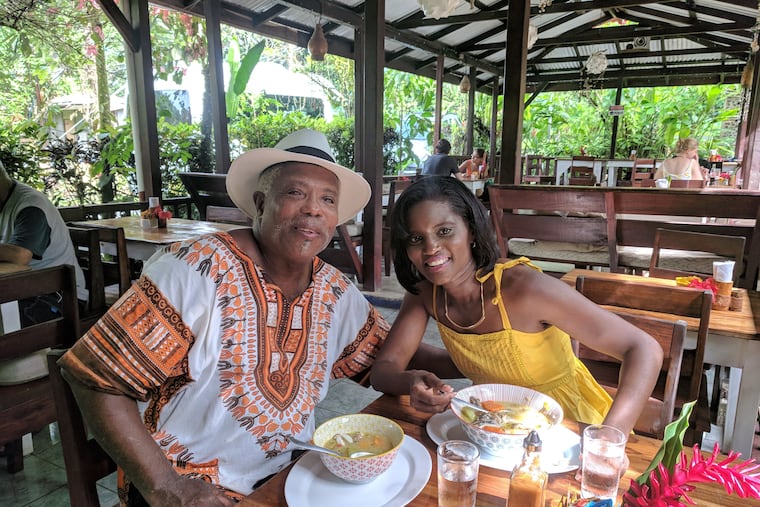Girls High grad launches a PBS travel show with a focus on Afro-Latino culture
"Afro-Latino Travels with Kim Haas" made its debut this month on a number of PBS stations as a two-episode special that highlights the contributions of Black people to Costa Rica.

The global pandemic has put a crimp in many people’s travel plans, but for Kim Haas, who grew up in West Mount Airy, it’s also meant that her fledgling travel show so far has only two episodes.
Afro-Latino Travels with Kim Haas made its debut this month on a number of PBS stations nationally as a two-episode special that highlights the contributions of Black people to the culture and history of Costa Rica. At 8 p.m. Wednesday, PBS’s NJTV 23 will air the second episode.
Set in Limón, a city on the Caribbean coast where Jamaican-born political activist and entrepreneur Marcus Garvey once lived, it explores, among other things, the role Black people played in the construction of the country’s railroad.
In August, “we were supposed to shoot in Brazil — Salvador, which is considered the capital of Afro-Brazilian culture” and were talking about filming as well in Rio de Janeiro, but “Brazil’s been hit really hard by the virus,” Haas said in a phone interview on Monday.
A former marketing director for Telemundo’s Philadelphia station who now runs her own communications firm in North Jersey, Haas is fluent in Italian as well as Spanish. The daughter of Rose and Spencer Lewis graduated from Philadelphia High School for Girls and majored in Spanish at the University of Pittsburgh, earning her master’s in Spanish from La Salle University.
Studying in Spain during her junior year of college and learning about the Middle Passage, in which Africans were forcibly taken to the West Indies, ignited her interest in the role that enslaved people and their descendants played in the development of Latin America, she said.
Haas, who is Black, is not “as far as I know” of Latin descent herself, but she’s eager to correct what she believes to be common misconceptions about the countries she’ll feature in the show. For instance, many “people don’t know that there are Black people in Costa Rica,” she said. “People think about Cuba and Brazil almost automatically as having very strong African roots. But countries like Costa Rica, and Mexico, and Uruguay ... [and] Peru have Black communities and always have.”
She also decried what she said was “a serious lack of representation of Afro-Latinos on Spanish-language television," adding, “When you travel to Latin America, there are an awful lot of people who look like me. And their contributions are integral to the development of so many countries.”
Haas is a fan of the late writer, chef, and travel-show host Anthony Bourdain. “He went to places like the Congo. He went to Salvador [Brazil] ... so he featured Black people. And I really appreciated that about his show — that he didn’t just do Europe,” she said.
As a producer herself, she’s also impressed by his shows' production values. “I just would watch and like, wow, how did they do that? You know, really loving how they just put together a show,” she said.
Starting a travel show from scratch, “you just put one foot in front of the other,” she said, noting that for PBS, producers “have to come up with the funding.”
Costa Rica’s tourism board provided in-kind services — including travel and hotel — and a grant from the Ford Foundation helped fund postproduction costs, she said.
Where would Haas herself book a trip to first the minute there’s a vaccine?
She paused. “It would probably be a tie,” she said, between Salvador de Bahia [Brazil] and Santiago de Cuba. Though she’s been to Havana twice, she’s never made it to Santiago, Cuba’s second-largest city. “It’s considered the capital of Afro-Cuban culture. And so rich in music.”
Afro-Latino Travels with Kim Haas. 8 p.m. Wednesday, NJTV 23.